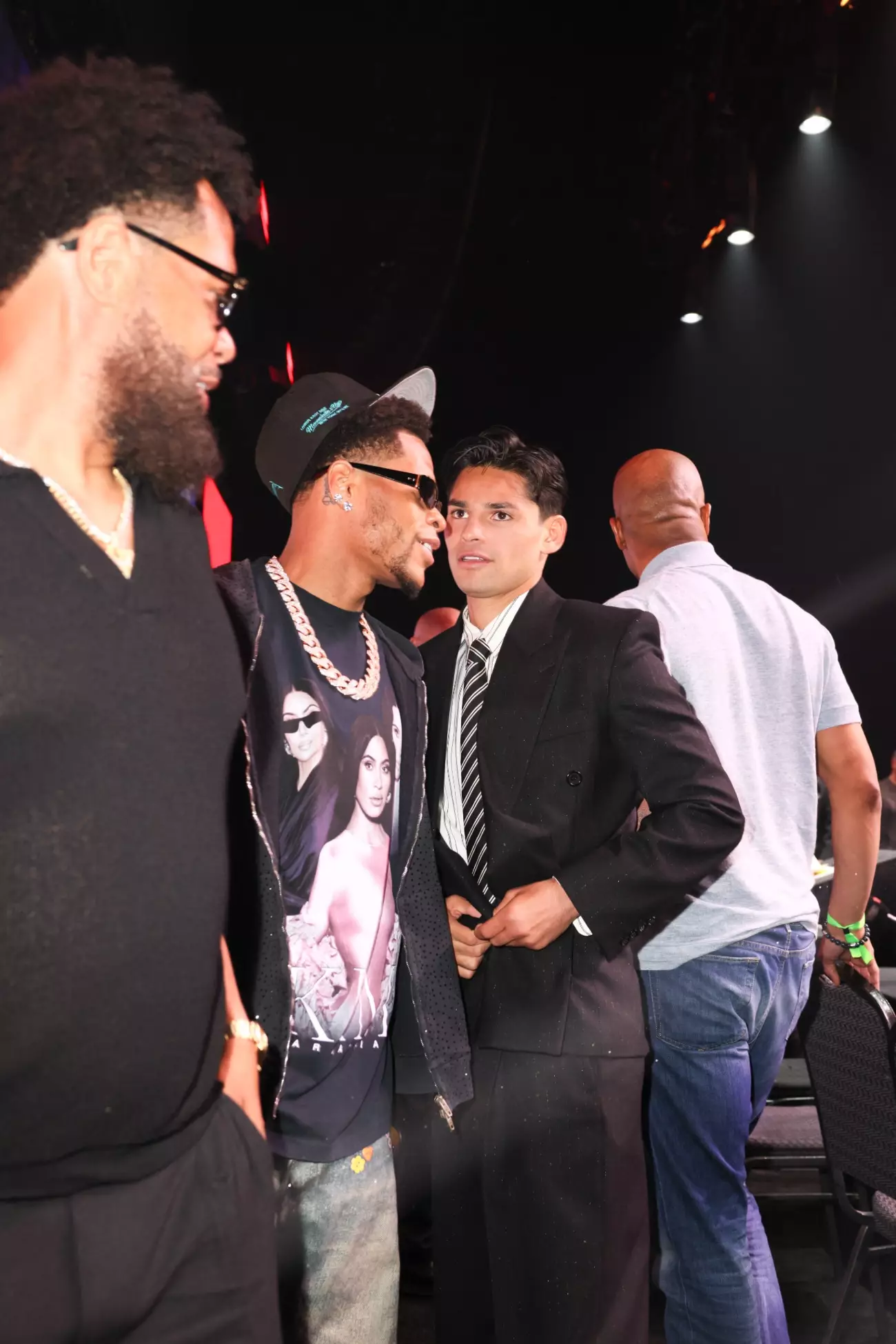When personalities collide in the world of professional boxing, it often leads to not just conflicts in the ring but dramatic confrontations outside of it. This past week at the Fatal Fury final press conference in Times Square, New York City, tensions erupted between Bill Haney—a pivotal figure in contemporary boxing and father to reigning champion Devin Haney—and former boxing icon Oscar De La Hoya. The anticipation surrounding Devin Haney’s upcoming fight with Jose Ramirez has only intensified the stakes, turning what would have been a routine press conference into a theater of verbal sparring.
At the center of this unfolding drama was a pointed exchange not only between two proud fathers but between two contrasting ideologies about what it takes to succeed in a highly scrutinized sport. Teofimo Lopez notably instigated this clash, reigniting old grievances while fanfare surrounding the fight crescendoed. It was an incendiary moment, with De La Hoya seemingly ready to engage physically. The swiftness of the security personnel couldn’t prevent the palpable tension from being felt throughout the venue, an indication that ego and pride in boxing are often as significant as the athletes’ physical prowess.
The Stakes of Fatherhood and Management
The fallout from this encounter raises significant questions about the dynamics of family and management in boxing. Bill Haney, managing his son’s career, finds himself scrutinized and criticized not only by rivals but by industry insiders like De La Hoya. The accusations levied against him claim that his actions could jeopardize Devin’s career, particularly following a lawsuit against Golden Boy Promotions that created rifts and raised eyebrows. Boxing, steeped in tradition, often intertwines familial bonds with business ambitions. Yet, with such high stakes, how much leeway should fathers have in the management of their sons in this sport?
Oscar De La Hoya’s comments hit hard—he seemed genuinely astonished that Devin hasn’t dismissed his father as his manager. This sentiment reflects a broader concern shared by observers about the balance of familial loyalty versus professional aptitude. Does Bill’s unwavering commitment and the emotional ties they share cloud his judgment? Or is his perspective crucial for navigating the cutthroat world of boxing?
Despite the criticisms Beating his father figure in the ring might feel like a rite of passage for many boxers. Yet, for those like Devin Haney, who have the inculcated desire to succeed and the need to maintain family ties, this becomes a complicated web to navigate. Firing his father could symbolize throwing away a legacy—or perhaps paving the way for a brighter future. On the other hand, keeping him close means maintaining the ambition and emotional support essential to thrive in a sport that offers no quarter.
Psychological Battles: The Shadow of Confidence
Oscar De La Hoya’s statement about Devin’s confidence in light of past challenges is equally compelling. Boxing, often a sport defined by physical prowess, is perhaps even more complicated on a psychological level. The aftermath of prior setbacks like knockdowns can linger, sowing seeds of doubt, especially when the fighter has been waiting to rise back to prominence. Devin’s upcoming fight against Jose Ramirez isn’t just a mere athletic engagement; it’s a test of psyche, resilience, and the ability to overcome adversity.
In boxing, the psychological landscape can be just as treacherous as stepping into the ring. The stakes are higher than mere championship belts; they encompass reputation and the ability to rise above personal and professional challenges. As De La Hoya pointedly noted, the unknown variable of Devin’s mental preparedness could sway the fight’s outcome. If Devin falters at a crucial moment, the consequences extend beyond just the loss—it could reshape his career trajectory and his standing in the boxing community.
A Broader Implication
This clash isn’t confined to the immediate individuals involved; it resonates through the broader boxing community, reflecting how the sport is evolving in an era of heightened scrutiny and financial stakes. Promoters, fighters, and family members alike all play critical roles in crafting a fighter’s narrative. The tensions between Bill Haney and Oscar De La Hoya expose the intricate relationship between family dynamics, mentorship, and the often cutthroat nature of boxing promotion.
At its core, this unfolding drama serves as a reminder that boxing is about more than just punch counts and title fights; it’s a world built on personality clashes, relationships, and often precarious balances between personal and professional aspirations. As we witness the crescendo of drama surrounding Devin Haney’s fight, we find ourselves captivated not only by the athleticism expected in the ring but by the rich, complicated tapestry that defines the sport’s culture.

